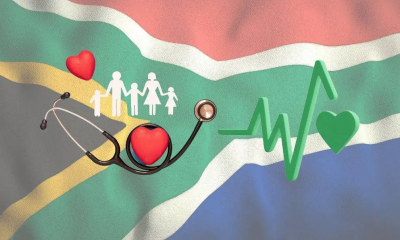Business
BHF Proposes Affordable Private Healthcare Solutions for South Africa

As South Africa grapples with rising healthcare costs, the Board of Healthcare Funders (BHF) has put forward two innovative proposals that could make private healthcare more affordable and accessible. The BHF, representing over 40 medical schemes and administrators who collectively cover 4.5 million South Africans, is advocating for Low-Cost Benefit Options (LCBOs) and collective tariff negotiations. These measures, the BHF argues, could be implemented immediately to benefit millions of South Africans.
The Case for Low-Cost Benefit Options (LCBOs)
With the high cost of healthcare, many South Africans are unable to access private medical aid. Currently, only 9 million citizens are members of a medical scheme, leaving millions reliant on a public healthcare system under increasing strain from budget cuts. The BHF estimates that allowing medical aid schemes to offer LCBOs—affordable packages covering essential primary care services—could extend private healthcare coverage to an additional 10 million low-income South Africans.
The potential benefits of LCBOs are substantial, yet progress on this proposal has stalled. Since 2017, despite legislative groundwork through the demarcation regulations, the Council for Medical Schemes (CMS) has yet to finalize an LCBO framework. To expedite change, the BHF filed a court case in 2022 to compel the CMS to implement the necessary exemptions, highlighting that with a “stroke of a pen,” 10 million South Africans could immediately gain access to affordable private healthcare.
Collective Tariff Negotiations: A Path to Lower Costs
Another key aspect of the BHF’s plan involves allowing medical schemes to collectively negotiate tariffs with healthcare providers. This proposal, initially recommended in the 2019 Health Market Inquiry Report, would increase transparency around healthcare costs by making negotiated tariffs publicly available. Not only would this create a benchmark for patients to compare providers’ fees, but it would also help curb the consistent above-inflation increases in medical scheme contributions.
To facilitate this, the BHF applied for an exemption from the Competition Act in 2021, enabling it to negotiate tariffs on behalf of its members. However, the application has yet to be processed, and the Department of Health has made no moves to establish a negotiation forum for healthcare stakeholders.
Addressing Urgent Healthcare Needs While NHI is in Limbo
The BHF supports universal healthcare but questions the National Health Insurance (NHI) Act as the sole solution. According to BHF’s Managing Director, Katlego Mothudi, the NHI in its current form won’t meet the urgent healthcare needs of South Africans. Instead, LCBOs and collective tariff negotiations could make a real difference now, offering sustainable relief to the public healthcare system by tapping into existing private healthcare capacity.
With these immediate solutions, millions more could access affordable healthcare without waiting years for NHI implementation.
A Call for Government Action
As Finance Minister Enoch Godongwana prepares to deliver his medium-term budget, there is an opportunity to push for reforms that bring more affordable healthcare to South Africans. The BHF’s proposals could drive down costs and expand coverage—improving healthcare access and quality across the country.
It’s time to unlock the potential of LCBOs and collective tariff negotiations. By prioritizing these changes, the government can offer a sustainable solution for the healthcare needs of millions while reducing the load on the public health system.
The BHF’s proposals present a clear path to more affordable private healthcare in South Africa. By embracing these practical, industry-supported solutions, South Africa can take significant strides toward universal healthcare, helping millions more access quality healthcare today.

















